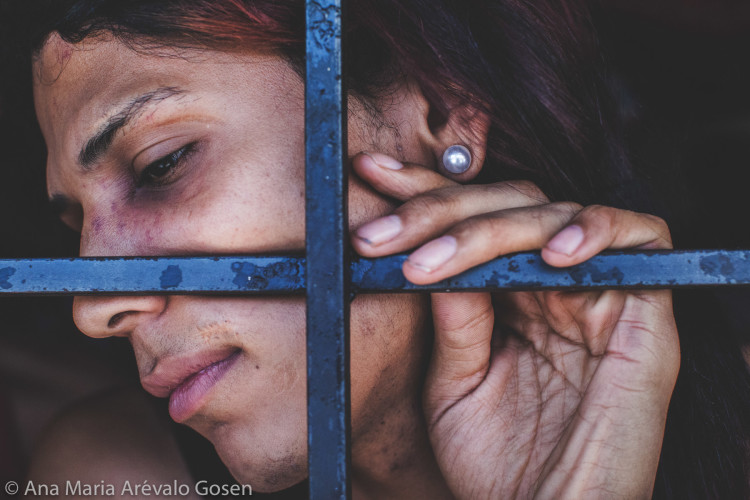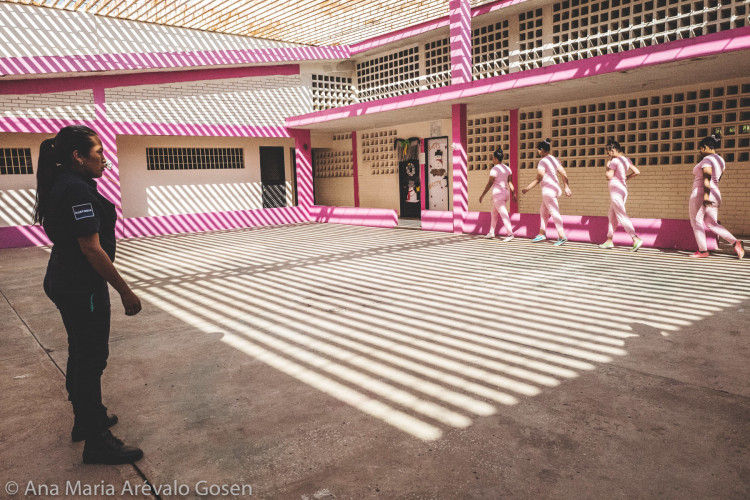The jury of this eighth edition has awarded Venezuelian photojournalist Ana Maria Arevalo Gosen for her work “Dias Eternos” on women in Venezuelian prisons
The story
Dias Eternos
The current economic misery in Venezuela, mixed with violence and crime rooted in society, is accentuated inside the preventive detention centers. The procedural delays are separating thousands of women from their families and children for months or even years.
The prison system goes beyond the threshold of what is considered not acceptable in societies where democracy works. Cases of deaths due to malnutrition, infectious diseases and riots. The facilities are severely overcrowded. There are extreme precariousness of sanitary facilities, supplies are provided by family members. There is a lack of medical assistance. In this context of deprivation, detainees are in a very vulnerable situation. They are women of modest origins. Their biographies have been marked by family abandonment, sexual abuse or violent treatment. They are accused of drug smuggling, theft, illicit carrying of arms, kidnapping, association to commit a crime, corruption of minors, infanticide, terrorism and looting of private property. The causes for imprisonment also extends to the political sphere. The “law against hate”, which passed in January 2018, forbids any protest against the government and has put numerous women behind bars.
Having a second chance in their lives is a recurring idea that almost everyone has in mind. How do prisoners – some of them mothers – continue their lives after release and reunite with their families? And what do their conditions tell us about the state of the current Venezuelan crisis? Facing this dreadful reality of the Justice system, a mandatory task of public debate and political action – not only in Venezuela, but everywhere in the world – is to contribute to the urgency of establishing penitentiary institutions that do not violate the Human Rights of these women.
Biographie
Ana Maria Arévalo Gosen (Caracas, Venezuela. 1988) is a fighter for women’s rights and her weapon is visual storytelling. Mixing rigorous research with intimate stories, she wants to make a positive impact through her projects.
Because of the crisis in Venezuela Ana moved to Toulouse in 2009. She studied Political science (IEP) and photography (ETPA). She did an internship at the AFP, Paris where he acquired knowledge about press photography.
In 2014 Ana moved to Hamburg and works as a freelance photographer. She worked as an editorial photographer and her work was published in media such as Szene Magazin and Der Spiegel.
In 2016-2017 she produced her most challenging work. “The meaning of life” is the intimate story of her husband’s fight against testicular cancer. Today they use it to raise awareness about this disease. Each year the exhibition and raises funds for male cancer research (2017 in Madrid and 2018 in Bilbao).
Her roots called her in 2017, when she returned to Venezuela, the place of her source of inspiration. Her first long-term “Dias eternos”, on the conditions of women in preventive detention centers and prisons in the country. This work was awarded the Women Photograph (2018) and Pulitzer Center on Crisis Reporting Travel Grant (2018). It won the first place of the POY Latam in the category “the strength of women” and PH Museum women grant honorable mention (2019). It was published in the New York Times, LFI, 6Mois, El País, Wordt Vervold, among others. Exhibited at the Manifesto Festival in Toulouse. In April 2018, she was invited to participate in a conference in Defense of Human Rights (FIU, Miami). She wants to carry on this work in the rest of Latin America.
Today she lives in Bilbao spending long periods in Venezuela.


